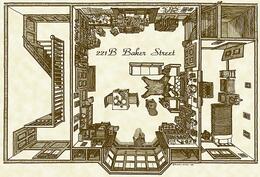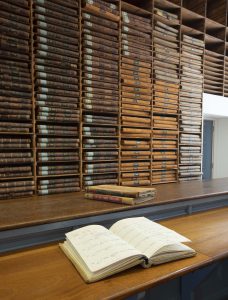 Russ Stutler - http://www.stutler.cc/other/misc/baker_street.html
Russ Stutler - http://www.stutler.cc/other/misc/baker_street.html Which is pretty much what we need to be doing every time we encounter new characters and new evidence in our family history research. I was reminded of the wisdom of playing "objective detective" when I recently responded to a request for help.
One of the best questions that you can ask of any evidence that you are not sure of is "What would have to be true for this not to be my ancestor?" Let me explain how trying to answer this question can help guide your research.
So, in the case of this particular family, we were seeking an ancestor's burial place and needed to establish the right death record and start our hunt from there. One man dying in the Waterford workhouse in 1903 was promising and we did also have his usual townland from the record. However, the surname was not uncommon in the area. A perfectly feasible alternative scenario could have been that this was a similarly named cousin of our man of about the same age who had come to stay with the family and fallen ill? Back to the 1901 censuses and an exercise in family reconstruction was needed. Ironically, this same census revealed another man of the same name and age living in another similarly named townland but in another part of Co. Waterford! Logically, if he was going to die in a workhouse, it ought to have been his local one which was not Waterford City. Still, it would be a good idea to follow him forward from 1901 and "kill him off" separately to be certain.
What if our man hadn't died in Ireland? Perhaps he had emigrated, hoping to bring his young family to join him but had disappeared or died whilst abroad? This would need a lot of work trawling through passenger lists and any available overseas censuses or deaths.
I can't say that we definitively solved this particular people puzzle, but by being forensically rigorous, we could at least support our tentative conclusions thus far. A famous Sherlock Holmes quote states that "Whenever you eliminate the impossible, whatever remains, however improbable must be the truth." However, as we all know, genealogical evidence is often far from complete and we always wonder what other evidence might be out there that we haven't found or perhaps never survived that would contradict our conclusions. In the meantime, when you think you have found something promising, ask yourself that searching question and test the alternative scenarios.


 RSS Feed
RSS Feed
